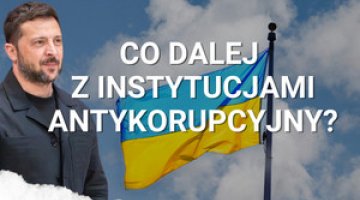The “European” laws fail to get through Ukraine’s parliament
On 5 July the Verkhovna Rada of Ukraine, elected in 2012, ended its spring session. 26 out of the planned 39 plenary sessions were held during this session. The Verkhovna Rada of Ukraine adopted only a number of laws which were necessary in order to relax the EU visa system. It did not discuss the laws necessary for the conclusion of the Association Agreement (AA) with the EU at the Eastern Partnership summit planned for November in Vilnius this year.
This session differed from the previous custom and this was most apparent in the fact that the practice of mass voting for those who were absent was abandoned. This, however, came at the cost of the paralysis of legislative work: the Party of Regions, which is dependent on support from the Communists and independent members of parliament, was not able to ensure the presence of all its members and lost a number of voting sessions that were important to the party. As for the opposition, it often resorted to blocking manoeuvres and other ways to disrupt sessions.
Commentary
- As had been expected, the presence of the strong Svoboda grouping contributed to the radicalisation of the main opposition forces (Batkivshchyna and the Ukrainian Democratic Alliance for Reform of Vitali Klitschko, UDAR) and made it impossible for the Party of Regions to form a majority through bribing opposition members of parliament. On the other hand, the Communists, who are now stronger than under the previous parliament, ended its coalition with the Party of Regions and supported it only in the cases where it suited their anti-European and anti-liberal manifesto. As for the opposition, it sought to prevent the Verkhovna Rada of Ukraine from adopting the laws which would be reflect well on President Yanukovych.
- This situation was comfortable for the Party of regions as it enabled the party to shift the responsibility for not passing the government-proposed laws which were uncomfortable for the party leadership onto the opposition. For example, this was the case with the government-proposed draft which would make it possible to privatise the network of gas pipelines and which caused disagreements within the Party of Regions. The fact that it was not discussed in parliament could be ascribed to a violent objection from the opposition and the Communists. The Party of Regions parliament grouping consciously provoked the opposition to break off sessions of the Verkhovna Rada.
- In this situation the laws (including the reform of the state prosecutor’s office and the election law) that the EU requires to be passed in order to sign the Association Agreement with Ukraine had no chances of being adopted. The Communists objected to them on the grounds of their manifesto, the opposition did not back them as success in Vilnius would increase Viktor Yanukovych’s chances of re-election. The Party of Regions was also divided over these laws. In the last week of the session, despite the fact that Viktor Yanukovych announced during his meeting with the presidents of the Visegrad Group in Wisla, Poland on 3 July that all these laws would be passed, the Verkhovna Rada of Ukraine did not even attempt to take them under consideration.
- Many factors indicate that all of Ukraine’s political forces are already focusing on the battle for the presidency in 2015 and attach less significance to all other issues, including to the signing of the Association Agreement. It also seems that in Kyiv there is a dominant assumption that the release of Yulia Tymoshenko is not only an indispensable but also a sufficient condition for signing the Association Agreement. Therefore the chances that the Verkhovna Rada of Ukraine will begin to smoothly implement its tasks, in particular that it will pass the “European” laws, after it resumes the sessions in September appear to be negligible, irrespective of the final decision about the possible release of former prime minister Yulia Tymoshenko.





